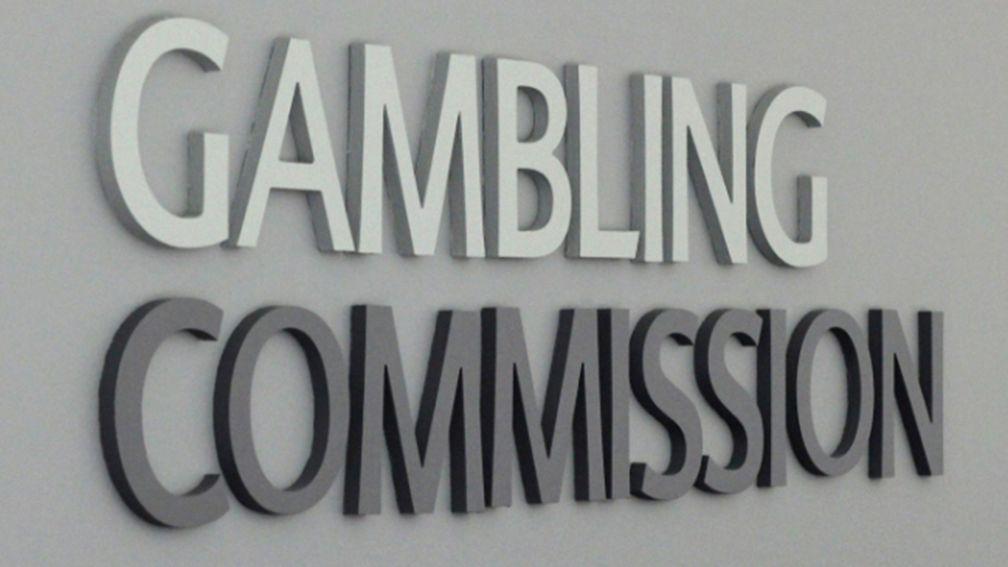Why we should be suspicious of the Gambling Commission's plans to rewrite problem gambling statistics

Never let it be said that Britain’s Gambling Commission goes in for conventional wisdom. Sir Isaac Newton asserted that "what goes up must come down", but Britain's gambling market regulator often sees things contrariwise.
After years of insisting that the reported rate of problem gambling must come down, the commission has now decided that in fact it should go up – and plans next year to post a figure several times higher than the current official statistic.
The consequences of this artificial (and scientifically questionable) increase could signal further trouble for horseracing.
In February next year, the Gambling Commission will publish the results of its new Gambling Survey for Great Britain (GSGB). Although fieldwork has not yet been completed, the regulator has been confident for some time that the new survey will report a rate of problem gambling several times greater than produced in the past by the 'gold standard' NHS Health Surveys.
Results from a pilot survey published by the commission in May last year indicated that 1.3 per cent of British people (aged 16 and over) could be PGSI (problem gambling severity index) 'problem gamblers' – roughly five times the 0.25 per cent reported in the NHS Health Survey for England in 2021.
There are two main reasons why the new problem gambling rate is expected to be higher. First, the commission's experimental survey will be completed online, whereas fieldwork for the NHS Health Survey has typically been carried out through face-to-face interviews (in 2021, this switched to video-based interviews as a result of Covid restrictions).
It is widely accepted that online surveys produce overestimates of the population prevalence of problem gambling. Last year, Professor Patrick Sturgis and Professor Jouni Kuha from the London School of Economics were asked to review differences in prevalence survey estimates.
They concluded that: "Surveys conducted online produce substantially higher estimates of problem gambling compared with in-person interview surveys. This is because online surveys, whether using probability or non-probability sampling, overrepresent people who are more likely to gamble online and to gamble frequently."
The GSGB can also be expected to have stronger appeal to people with above-average engagement in gambling, precisely because it is advertised as a gambling survey (rather than one about health or lifestyle). In the same way, a survey about football would be expected to over-recruit football fans.
The commission has acknowledged the risk that its new survey will be skewed by both these factors. Officials appear strangely unconcerned about issues of reliability and disconcertingly at ease with the idea that their planned rate of problem gambling will be substantially higher than NHS estimates.
What might seem like a rather technical matter has a number of serious implications for the regulation of the betting market, how bettors are treated and the finances of horseracing.
This is because the estimated rate of problem gambling in Britain is a key figure in matters of policy. The proposed spending thresholds for financial risk checks (which vary between £125 in 30 days and £2,000 in 90 days) have been explicitly calculated in reference to the current (low) prevalence estimates.
The commission's new requirement that online bookmakers conduct 'safer gambling' interactions with around four per cent of their customers each year (or higher if they also offer online bingo or casino games) is directly based on the same estimates.
We may therefore expect loud calls for lower affordability check thresholds and higher interaction quotas once the commission has replaced the 'gold standard' NHS prevalence estimates with its own.
This is simply not mentioned in the financial risk checks consultation (just as it was ignored in the commission's consultation on interaction quotas).
A failure to highlight contingent impacts from the implementation of different policies undermines the process of consultation and represents poor regulatory practice.
Statistics can also influence the political environment. It is difficult to think of a time when parliamentarians and the mainstream news media have been so hostile to betting; and so desperate to believe just about any calumny.
The commission bears at least some of the responsibility for this. Notwithstanding recent comments about the unacceptability of misusing statistics – or its perception of "imbalanced reporting" – the commission has repeatedly turned a blind eye to attempts to distort public policy through the use of misinformation. It has even approved funding for research projects with explicitly political aims (in contravention of its own rules).
Its decision to replace the 'gold standard' NHS Health Survey with its own experimental (and demonstrably flawed) version threatens to tilt yet further the balance of political debate.
It is critical that scrutiny is applied to this process. The use of audited industry data (which the commission already possesses) can, for example, be used to check self-report survey results on participation.
If the regulator genuinely wishes to "build confidence in the statistics through transparency and access to data for all" then it should release the full datasets from the pilot and experimental stages so that independent researchers can test for skew (to date it has refused all such requests).
The introduction of a new survey may not strike most people as important (the commission’s 2021 consultation attracted just 62 responses in comparison to more than 13,000 received on affordability checks), but the rewriting of statistics – at a critical point for the betting market – could be the most significant development yet.
Dan Waugh is a gambling industry commentator and partner at global strategic advisory business Regulus Partners
Round-up
Mark Stebbings set to leave Betfred
Betfred chief operating officer Mark Stebbings has announced he is stepping down this week after nearly 30 years with the company.
Stebbings started off with Betfred as a trainee shop manager and held roles including managing director of retail before becoming COO. He was also instrumental in setting up Betfred's US operation.

He said in a LinkedIn post: "After nearly 30 years I have decided it is the right time for me to leave Betfred. I am immensely proud to have been part of an incredible growth story.
"I must give special thanks to Fred Done, who has been an unbelievable mentor to me and for the belief and faith he put in me as I made my way through the ranks from a trainee betting shop manager to group chief operating officer."
Lindar Media to pay £690,000 settlement
Lindar Media Limited is to pay £690,947 after a Gambling Commission investigation revealed social responsibility and anti-money-laundering failures.
The operator, which trades as Mr Q and runs MrQ.com, will pay the money as part of a settlement with the industry regulator, who said the payment would go to socially responsible causes.
Read next:
The Gambling Commission says we're imbalanced - this is our response
Gambling giant Entain gives revenue warning as stricter regulations continue to bite

Sign up to receive On The Nose, our essential daily newsletter, from the Racing Post. Your unmissable morning feed, direct to your email inbox every morning.
Published on inBetting World
Last updated
- New gambling survey will improve previous 'outmoded' methodology, claims regulator
- 'One of a kind and very special' - Jeremy Chapman on the pioneering bookmaker Mervyn Wilson
- Another milestone for Flutter as industry giant continues pivot to the US - but Illinois tax hike 'will cause real harm'
- General election decision leaves government's gambling reforms in limbo
- Tackling gambling's black market likened to 'whack-a-mole' by senior DCMS civil servant
- New gambling survey will improve previous 'outmoded' methodology, claims regulator
- 'One of a kind and very special' - Jeremy Chapman on the pioneering bookmaker Mervyn Wilson
- Another milestone for Flutter as industry giant continues pivot to the US - but Illinois tax hike 'will cause real harm'
- General election decision leaves government's gambling reforms in limbo
- Tackling gambling's black market likened to 'whack-a-mole' by senior DCMS civil servant